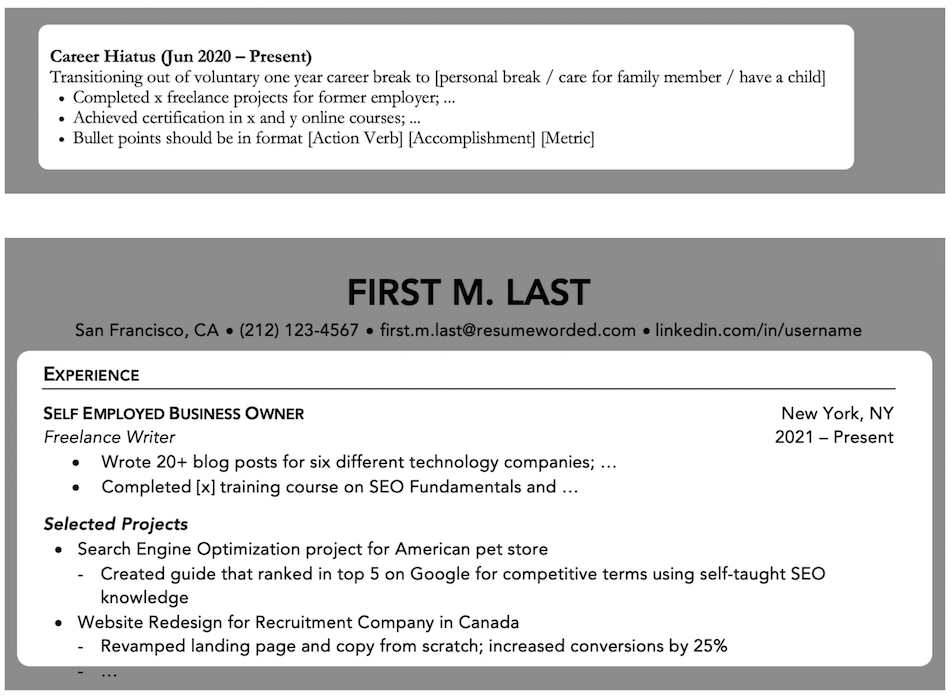How to Successfully Explain Career Gaps and Changes in Your Resume
Embrace Your Journey
Facing gaps or changes in your career path can feel daunting, but it’s important to remember that you’re not alone - many professionals have navigated similar circumstances. Rather than viewing deviations from a straight trajectory negatively, reflect on them as natural parts of your unique journey. Every experience, even difficult ones, can teach valuable life lessons if we’re open to gleaning wisdom. Have confidence that you’ve gained insightful perspectives to now offer employers.
Overcome Past Challenges with Resilience and Growth
Times of transition aren’t failures, they’re opportunities for growth. How did you spend your gap productively, such as through education, volunteering, freelancing or caring for family? Explain holistically how you’ve developed skills like adaptability, perseverance and empathy to come out stronger. Recall setbacks not with regret, but gratitude for the resilience they cultivated. Showing personal development reassures hiring managers of your ability to weather challenges professionally.

Address Gaps Honestly yet Optimistically
Don’t dodge gaps, but address them respectfully without giving undue focus. Lead with qualifications rather than explanations so the focus remains on your strengths and potential contributions. If necessary, summarize gaps succinctly to satisfy practical questions without rehashing sensitive details.
Share Relevant Transferable Skills Gained
For a career change, highlight how your background applies to the new field, such as transferable soft skills, industry knowledge or relevant hard skills. Emphasize related capabilities and convey a confident outlook on your next chapter regardless of previous detours.Prospective employers will appreciate your honesty and self-awareness when presented positively.
Customize Your Story Strategically
While transparency is best, you control what information goes in your resume versus being saved for interviews. Strategize priorities based on factors like the role, company culture and your circumstances. For instance, if gaps involve health issues, filter details respecting privacy and compliance with disability laws.
Tailor Your Narrative to the Job
Connect experiences directly to requirements and consider including an objective to link your background seamlessly. With advance research, personalize examples that showcase how you satisfy their needs. A story customized for each job reiterates your strong match and motivation rather than dwelling in the past. This shifts focus proactively to the future you can contribute.
Emphasize Continued Self-Development
Demonstrate that gaps didn’t halt your drive to grow through learning new skills like programming languages or certifications. Subtly reference learning activities without filling space, then expand on themproportionately in cover letters and interviews. Self-directed development maintains marketability and convinces hiring managers of your commitment to lifelong betterment.
Highlight New Training Credentials
While gaps sideline career progression, list any complete or ongoing training to prevent skillsets from becoming outdated. Completed courses signal staying current with industry trends that strengthen future contributions despite breaks from the workplace. Speaking to new learning also affirms remaining growth-focused despite challenges encountered.
Present Confidently with Enthusiasm
Believe in yourself and your worth despite hurdles faced. Convey optimism both nonverbally and through language to infect others with confidence in your abilities. Rather than appearing apprehensive or insecure about your resume, impress with sincerity, self-assurance and likability. Employers often choose candidates as much for their personalities as skills, so let your passion energize them.
Demonstrate Desire to Succeed
Show through powerful resume formatting, keyword-rich language and well-researched connections to the role that you’re serious and enthusiastic about the opportunity. Expressing zest for the field and company inspires confidence in your motivation to not just acquire a job but advance the mission. Conveying drive despite setbacks makes others eager to invest in your potential for achievement.
Follow Up Promptly and Professionally
Following application guidelines respectfully boosts your positive impression. Send timely thank you notes after interviews highlighting discussed points that intrigued you about their needs and company culture. Express appreciation for their time and consideration and maintain lively interest. Politely inquire about next steps if not already mentioned. Post-interview correspondence reinforces your communication skills, commitment and courtesy.
By embracing your unique story with resilience, optimism and determination to succeed, you demonstrate power over past bumps to become an empowered candidate. With confidence and focus on qualifications, no barrier need limit your opportunities if addressed respectfully. Now go share your remarkable self fully!
